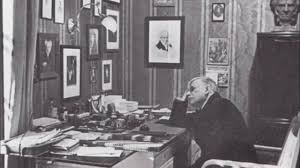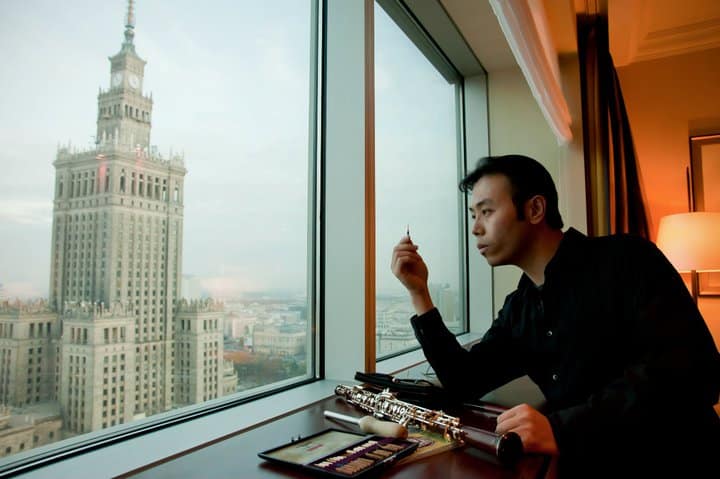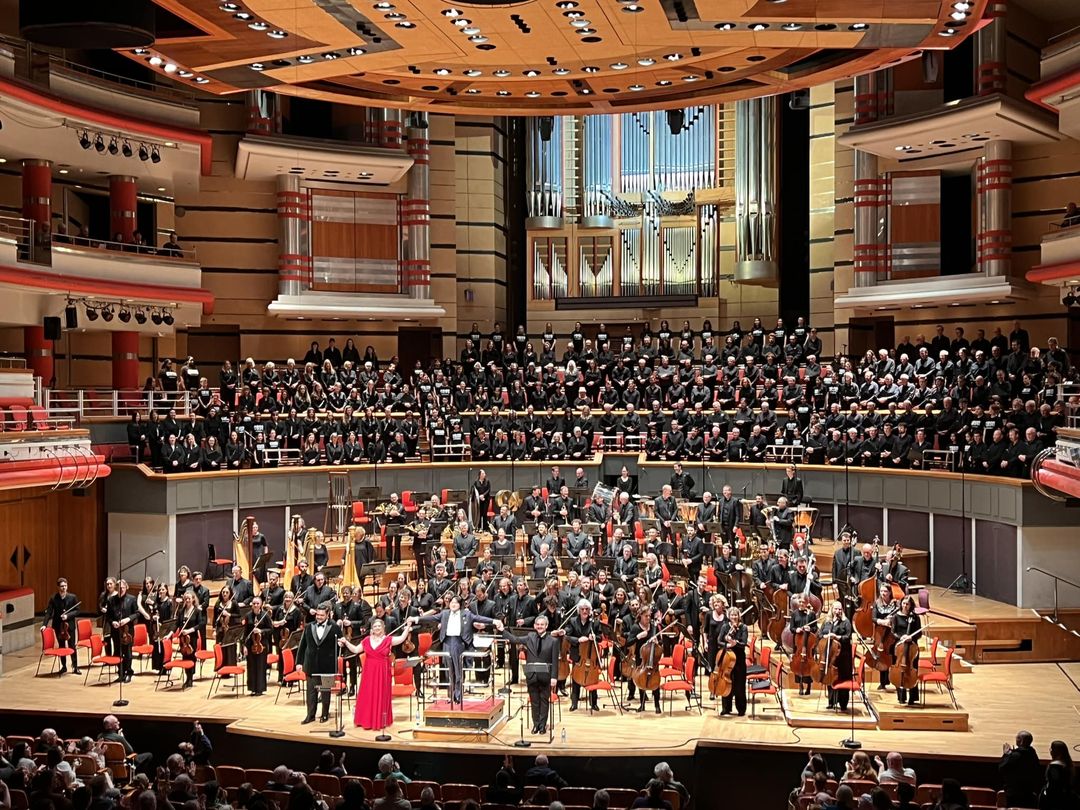Anyone for Pfitzner?
OperaAdam Kirsch argues that the one-hit wonder is worth our attention for his conservative ideas, if only because Thomas Mann was impressed.
But Pfitzner was a miserable human being with a wretched taste in friends:
Pfitzner’s professional marginalization only inflamed his cultural and political hostility to Weimar Germany, and he followed the typical reactionary path that Mann avoided. Though Pfitzner had Jewish friends and colleagues—including Bruno Walter, who conducted the premiere of Palestrina—he became a vocal anti-Semite, repeating the Wagnerian libel that Jews were innately incapable of musical greatness. He was also an early admirer of Adolf Hitler, whom he met in 1923, the year of Hitler’s failed Beer Hall Putsch in Munich. They were introduced by a mutual friend who brought Hitler to visit the composer in the hospital while he was recovering from gallbladder surgery…
Read on here.






A marvelous, insightful article. Just about anything Kirsch writes is worth reading and musing upon.
I couldn’t disagree more. In my opinion, the reasoning was contradictory, the prose was bloated and flatulent, and the article was badly in need of an editor.
Pfitzner deserves a hearing despite his loathsome political and racial ideology. Surely if we can now overlook the questionable attitudes of men like Karajan, Furtwangler, Gieseking, Wagner and others, we can at least listen to Pfitzner with open ears. I am drawn to the music of his era: Korngold, Schreker, Schmidt, Zemlinsky, and Pfitzner are very attractive to me. Pfitzner’s Kleine Sinfonie op. 44 is quite enjoyable and the Sinfonie op. 46 should be heard, too. While so many composers wasted so much paper writing music few enjoyed and even fewer could understand, Pfitzner wrote beautiful music that doesn’t deserve it’s near total neglect. Das dunkle Reich might raise some eyebrows…
One of Kirsch’s points is striking. He describes Thomas Mann’s reason for supporting Germany in WWI, which was to protect “Germany’s unique national character from the domineering universalism of the West.” Germanic culture indeed stands apart from the rest of Europe more than any other European culture. People in Italy, France, the UK, Spain, Poland, the USA, the Nordic countries, and Eastern Europe usually quickly find a common bond, but in the German-speaking world, it often isn’t so easy or natural. Germanic culture keeps one foot in the West, but the other in a world that is neither East or West. That world is German and there is nothing else like it East or West. The Germanic world will never full embrace the “universal” values of the West that Kirsch mentions. The rest of Europe knows this and it’s why Europe will always remain somewhat divided. The future of the EU rests in learning to deal with this problem.
The violin concerto is a masterpiece
Surprisingly he has loads of fans, along with some others of dubious credentials:
https://youtu.be/69rpAu9t9BA
Pfitzner is an amazing composer – loved by Gustav Mahler, Bruno Walter, Kirill Petrenko, Simone Young, Ingo Metzmacher, Christian Thielemann, Bernhard Kontarsky, Fabio Luisi and many others ..
Just this one for Pfitzner: When a bomb destroyed his Munich house he asked ‘ Wer hat gesagt das mir nicht mehr einfiel?’
It is a brilliant article and Pfitzner was indeed a dreadful man. Yet the best parts of “Palestrina” — indeed, the whole first act — rank high among my favorite early 20th century music.
Didn’t know the Nazi stuff. Still love the opera. I saw Palestrina in Vienna back in 1978.
There’s one important line of argument that Adam Kirsch fails to adduce — that the failure of perception of which he accuses Pfitzner in his closing paragraph was fuelled by Pfitzner’s narcissism; he couldn’t see beyond his own music. He saw the world in terms of himself: his sympathy for the Nazis is easily explained in these terms — he was a German nationalist becase he himself was German, and since the Nazis were also German nationalists, he felt that they agreed with his worldview; he saw them as supporting his worldview, not the other way around. He was principled in his self-interest, though: the Nazi cultural administration set up a concert to mark Pfitzner’s 70th birthday, but banned the appearance of the pianist who was going to play the Piano Concerto, Dorothea Braus, because her husband was Jewish — but because she had supported him, he supported her and pulled the rug on the concert. The same goes for his visit to Hans Frank in prison in Nuremberg. Hans Keller told me once that Pfitzner achieved greatness only in those works where he was setting texts, and that his instrumental and orchestral music was often banal — but I wonder if Hans knew the magical Third Cello Concerto or the miraculous Clarinet Sextet from the end of his life, where he manages to express a kind of resigned happiness, and this after a number of personal tragedies. I think that if Kirsch had taken that work into account, he might have allowed Pfitzner the perception that his last paragraph denies him. My armchair psychologist’s assumption is that his crushing personal losses – death and alienation among his children, his house bombed, his country defeated and destroyed — broke his spirit sufficiently to allow a milder personality to emerge at last, just before his death.
That article was so long… I won’t have time for the opera.
I like his note that, “By Pfitzner’s time, scholars had shown that this “trial” of polyphony was a fiction…”
That fiction was still being taught in a music history class I took in the late 1970s.
D’oh!
I recall a prof at that school… the one who was sure 12-tone serialism was where our attentions belonged… declaring, “Palestrina was the worst composer ever!”